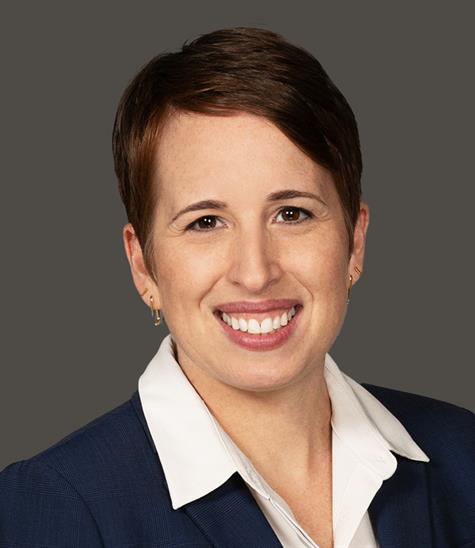
San Francisco Property Division Lawyers
Representing Clients in Marin, San Mateo, Contra Costa, & Alameda Counties
One of the most complex, and often contentious, issues in any California divorce is marital property division. California is a “community property” state, which means that all assets and property acquired during the marriage are considered to be owned equally by both parties, regardless of whose name is on the title. These assets are known as the marital estate, along with any debt accrued by either party. When dissolving a marriage or domestic partnership, the marital/domestic estate will be subject to an equal division, although certain factors may impact this.
You and your spouse/partner may negotiate your own property settlement agreement and submit it to the court for approval. However, we believe it is wise to consult with a San Francisco property division attorney to ensure that you fully understand all the implications of the agreement. If you and your spouse are in dispute over this matter, you can go through mediation, which leaves you in control of the outcome, or you can go to court, where a judge will determine your property settlement. At Van Voorhis & Sosna, we assist clients with all aspects and variations of property division.
Get expert legal advice from San Francisco property division lawyers. Schedule your free consultation now—call us at (415) 539-0422 or contact us online to start protecting your assets.
Understanding California's Community Property Laws
The first consideration in property division is to distinguish between marital and separate property. Separate property is acquired prior to marriage and is titled to one party only, or includes gifts or inheritances received by one party only during the marriage.
Assets and property acquired during a marriage that become subject to property division can include but are not limited to:
- Your home and other real estate, both inside and outside the state
- Bank accounts
- Stock and bond portfolios
- Retirement accounts
- 401(k)s
- Pensions
- Vehicles
- Boats
- Art and collectibles
- Family-owned businesses or business interests
Dividing these assets can become extremely complex, especially in cases of high net worth, where complicated retirement and pension plans are involved, where assets are being undervalued or hidden to benefit one party, where businesses and professional practices are involved, and where separate property has become commingled into the marital estate.
This issue is subject to valid premarital/prenuptial agreements in which property and financial rights and responsibilities have been predetermined. It may also be impacted by spousal support awards, or where one spouse has squandered assets in bad faith prior to the divorce. Tax consequences are another important consideration that can affect how property is divided.
How Is Property Divided in a Divorce?
When a divorce occurs, the first step in property division is to identify what is considered community property and what is separate property. Once this is determined, the next step is dividing the community property equitably.
California courts apply the principle of equitable distribution, which means that property is divided fairly but not necessarily equally. While most cases result in a 50/50 split, the court will consider various factors that may justify a different distribution. These factors include:
- The length of the marriage: Longer marriages may lead to more equal property division because the community property is considered to have been built up over a longer period of time.
- Each spouse’s earning capacity: If one spouse has a significantly higher earning capacity, the court may award them a larger share of the community property or may order spousal support to balance the financial situation.
- Contributions to the marriage: Courts may consider non-financial contributions to the marriage, such as homemaking or childcare, when determining property division.
- Health and age of the parties: If one spouse is significantly older or in poor health, the court may consider this when dividing property.
- Debts and liabilities: Any debts incurred during the marriage, including credit card debts or mortgage obligations, must also be divided between the parties. The court will factor in who is responsible for the debts when making its division.
The role of San Francisco property division lawyers is to ensure that both spouses receive a fair division of property and that the division process follows California law.
Identifying and Valuing Property
Valuing property in a divorce can be a complex task, especially when it involves real estate, businesses, or investments. Each asset must be appraised to determine its current value, and then the court will determine how it should be divided.
Common types of property that require careful valuation include:
- Real estate: Homes, vacation properties, and investment properties must be valued. A real estate appraisal may be necessary to determine the market value of the property.
- Businesses: If either spouse owns a business, the business will need to be valued. This process may involve financial experts, accountants, and business valuators who can determine the business’s worth.
- Retirement accounts: Pensions, 401(k)s, and other retirement accounts are also considered community property if earned during the marriage. These accounts must be divided, and special procedures are often required to divide retirement benefits, such as a Qualified Domestic Relations Order (QDRO).
- Investments: Stocks, bonds, and other investments must be evaluated to ensure that their value is accurately reflected in the property division.
In cases where property has significantly appreciated in value during the marriage, it may be important to establish a baseline value from the date of marriage to ensure an equitable division. A San Francisco property division attorney can assist in working with financial experts and appraisers to ensure accurate valuation and an equitable division.
Maximizing Your Property Division Settlement
At Van Voorhis & Sosna LLP, our experienced San Francisco property division lawyers understand that a fair and equitable distribution of marital assets is crucial to our clients' financial future. We work tirelessly to ensure that our clients receive the best possible settlement that reflects their contributions to the marriage.
Here are some tips to help maximize your property division settlement:
- Know your assets: Make a list of all your assets, including real estate, bank accounts, investments, retirement accounts, and personal property.
- Understand the value: Get a professional appraisal or valuation of high-value assets, such as real estate or business interests.
- Consider tax implications: Some assets may have tax consequences, such as capital gains or losses, that can affect their value.
- Be flexible: It is important to be open to compromise and negotiation to reach a settlement that is fair and reasonable for both parties.
- Consult with an attorney: An experienced San Francisco property division lawyer can provide valuable advice and guidance throughout the process to ensure that your rights and interests are protected.
Don't leave your financial future to chance. Contact Van Voorhis & Sosna LLP today to schedule a consultation with one of our skilled San Francisco property division lawyers.
Our firm is dedicated to helping you achieve a fair property settlement that will put you in the best possible financial position so you can move forward with security. Our team is led by Certified Family Law Specialists who have extensive knowledge and experience in current case law, with proven negotiation and litigation skills that can be used on your behalf. We can also bring in other professional experts to ensure all property is identified, valued, and appraised properly.
Talk to Us to Protect Your Assets in a Property Division Settlement
When going through a divorce, one of the most critical aspects is the division of property and assets. Our experienced San Francisco property division lawyers understand the complexities of California's community property laws and can help you navigate through the process to protect your interests.
Some key factors to consider in property division include:
- Identifying and valuing all marital assets
- Determining separate property vs. community property
- Negotiating for a fair division of assets
- Protecting your business, real estate, investments, and retirement accounts
- Ensuring an equitable distribution of debts
Our team at Van Voorhis & Sosna LLP is committed to advocating for your rights and ensuring that you receive a fair and just property division settlement. Contact us today to schedule a consultation and discuss your case with our knowledgeable attorneys.
Put an experienced San Francisco property division attorney on your case to ensure a fair and just settlement. Contact Van Voorhis & Sosna online or at (415) 539-0422 for a free phone consultation.
Meet Our Team
Honest & Upfront Representation
What Sets Us Apart?

-
Over 100 Years of Combined Experience
-
Highly Educated & Recognized for Excellence
-
We Have Certified Family Law Specialists
-
We Add Value for Our Clients







